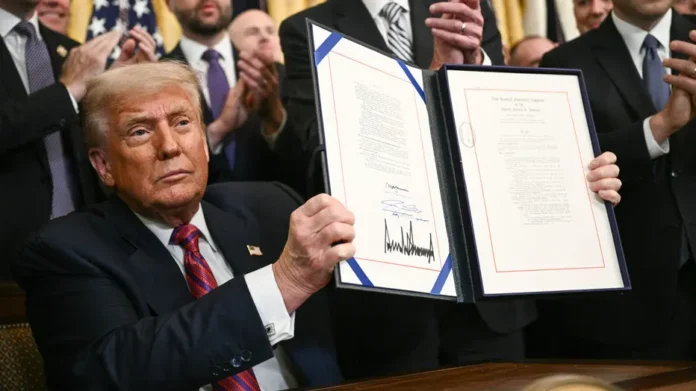The United States has created its first regulatory framework for stablecoins after President Donald Trump signed the GENIUS Act into law on Friday.
The law requires stablecoins to be backed by liquid assets such as U.S. dollars and short-term Treasury bills. Issuers will also have to publicly report their reserve holdings every month.
Stablecoins are digital tokens that aim to keep a fixed value, usually pegged to the U.S. dollar. They are used mainly by crypto traders to move funds quickly between tokens, but the industry hopes they will soon be used more widely for payments.
The law passed the House of Representatives by a vote of 308 to 122 after it was earlier approved by the Senate. Nearly half of House Democrats and most Republicans supported the bill.
Crypto companies say the law will increase trust in stablecoins and make it easier for banks, businesses and consumers to adopt them. Several crypto firms, including Circle and Ripple, are seeking banking licenses to lower costs and gain direct access to the financial system.
The stablecoin market is currently valued at over $260 billion. Supporters of the law believe it will increase demand for U.S. government debt, as issuers will need to hold Treasury bills to support their tokens.
The law follows a long lobbying effort by the crypto industry, which donated more than $245 million in the 2024 elections to support candidates backing crypto-friendly policies.
At the signing event, Trump said the new law would help strengthen the dollar and promote U.S. leadership in digital finance. He also thanked crypto executives for their support during his campaign. Trump has previously launched his own digital coin and owns part of a crypto firm called World Liberty Financial.
Critics say the law should have included stronger protections against money laundering and placed limits on stablecoin issuance by large tech companies or foreign entities. They argue the current rules leave gaps that could be used by criminals or hostile governments.
Trump also signed an executive order earlier this year to create a strategic bitcoin reserve.




